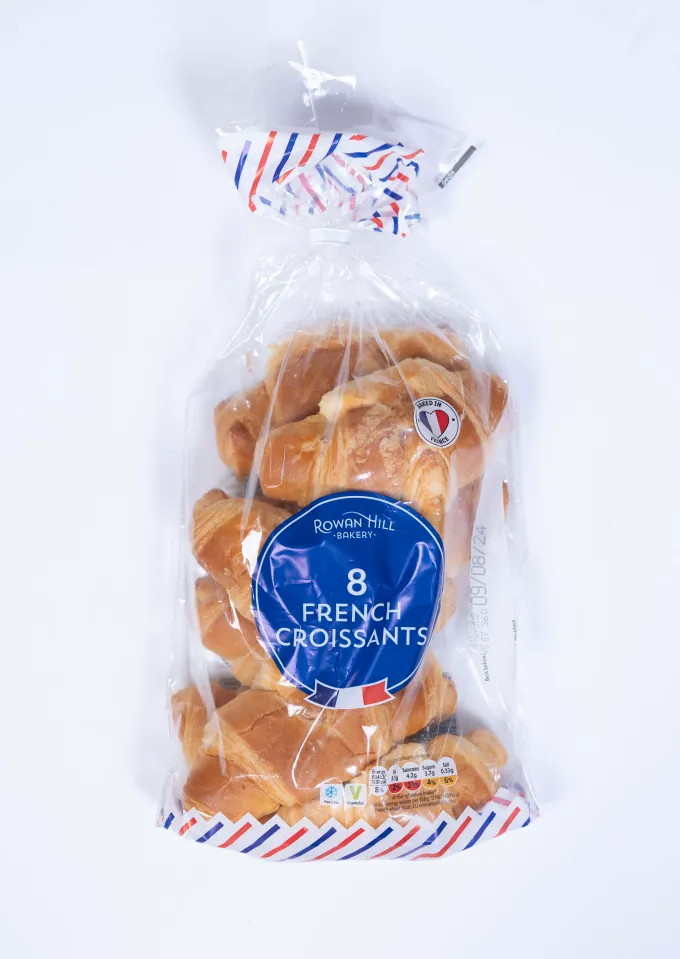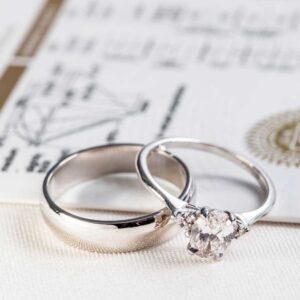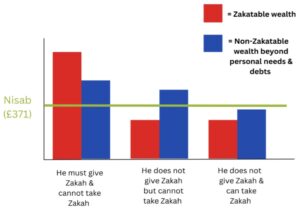
- +447575405251
- [email protected]
- +447575405251
- [email protected]

Question:
Are French croissants from Lidl that have alcohol as natural flavouring in them permissible to consume?
In the Name of Allah, the Most Gracious, the Most Merciful.
As-salāmu ‘alaykum wa-raḥmatullāhi wa-barakātuh.
Answer:
French croissants that have alcohol as natural flavouring remain permissible (halal) to consume.
This is because, during the baking process the ethanol, the intoxicating substance, is subjected to high heat and evaporates entirely. What stays is merely the flavour component, devoid of any intoxicating properties. In Islamic jurisprudence, permissibility is based on the absence of the intoxicating factor; since the alcohol itself no longer remains, the food is considered lawful to eat.[1]
And Allah Ta’āla Knows Best
Answered by:
Ibraheem Hayat
Checked & Approved By:
(Mufti) Muadh Chati
[1] Alcohols are split into 2 types
1, Alcohols derived from grapes/dates. The ruling when it comes to this alcohol is that every amount of this is haram. It is from clear nusus that any small amount of Khamr will always be impermissible even if it does not intoxicate. Ibn Abideen also writes in his book that even if you cook Khamr so much that it changes, the impermissibility will still be the same.
(الْأَوَّلُ: الْخَمْرُ وَهِيَ النِّيءُ) بِكَسْرِ النُّونِ فَتَشْدِيدِ الْيَاءِ (مِنْ مَاءِ الْعِنَبِ إذَا غَلَى وَاشْتَدَّ وَقَذَفَ) أَيْ رَمَى (بِالزَّبَدِ) أَيْ الرَّغْوَةِ وَلَمْ يَشْتَرِطَا قَذْفَهُ وَبِهِ قَالَتْ الثَّلَاثَةُ وَبِهِ أَخَذَ أَبُو حَفْصٍ الْكَبِيرُ، وَهُوَ الْأَظْهَرُ كَمَا فِي الشُّرُنْبُلَالِيَّة عَنْ الْمَوَاهِبِ وَيَأْتِي مَا يُفِيدُهُ وَقَدْ تُطْلَقُ الْخَمْرُ عَلَى غَيْرِ مَا ذُكِرَ مَجَازًا. ثُمَّ شَرَعَ فِي أَحْكَامِهَا الْعَشَرَةِ فَقَالَ (وَحُرِّمَ قَلِيلُهَا وَكَثِيرُهَا) بِالْإِجْمَاعِ (لِعَيْنِهَا) أَيْ لِذَاتِهَا وَفِي قَوْله تَعَالَى: – {إِنَّمَا الْخَمْرُ وَالْمَيْسِرُ} [المائدة: ٩٠]- الْآيَةَ عَشْرُ دَلَائِلَ عَلَى حُرْمَتِهَا مَبْسُوطَةٌ فِي الْمُجْتَبَى وَغَيْرِهِ (وَهِيَ نَجِسَةٌ نَجَاسَةً مُغَلَّظَةً كَالْبَوْلِ وَيَكْفُرُ مُسْتَحِلُّهَا وَسَقَطَ تَقَوُّمُهَا) فِي حَقِّ الْمُسْلِمِ (لَا مَالِيَّتُهَا) فِي الْأَصَحِّ. (حاشية. ابن عابدين، كتاب الأشربة، دار السلام، ٢٢/٢٦٩-٢٦٤)
(وَيُحَدُّ شَارِبُهَا وَإِنْ لَمْ يَسْكَرْ مِنْهَا وَ) يُحَدُّ (شَارِبُ غَيْرِهَا إنْ سَكِرَوَلَا يُؤَثِّرُ فِيهَا الطَّبْخُ) إلَّا أَنَّهُ لَا يُحَدُّ فِيهِ مَا لَمْ يَسْكَرْ مِنْهُ لِاخْتِصَاصِ الْحَدِّ بِالنِّيءِ ذَكَرَهُ الزَّيْلَعِيُّ، وَاسْتَظْهَرَهُ الْمُصَنِّفُ وَضَعَّفَ مَا فِي الْقُنْيَةِ وَالْمُجْتَبَى ثُمَّ نَقَلَ عَنْ ابْنِ وَهْبَانَ أَنَّهُ لَا يُلْتَفَتُ لِمَا قَالَهُ صَاحِبُ الْقُنْيَةِ مُخَالِفًا لِلْقَوَاعِدِ مَا لَمْ يَعْضُدْهُ نَقْلٌ مِنْ غَيْرِهِ اهـ وَفِيهِ كَلَامٌ لِابْنِ الشِّحْنَةِ…(قَوْلُهُ وَلَا يُؤَثِّرُ فِيهَا الطَّبْخُ) أَيْ فِي زَوَالِ الْحُرْمَةِ بِقَرِينَةِ الِاسْتِثْنَاءِ
(حاشية ابن عابدين، كتاب الأشربة، دار الإسلام ،٢٢/٢٦٦)
2, Alcohols derived from other than grapes/dates. Imam Abu Hanifah and Imam Yusuf are of the opinion that if the amount you drink is small that it is not intoxicating, then drinking that amount will be allowed
(وَأَمَّا) الْمَطْبُوخُ مِنْ نَبِيذِ التَّمْرِ وَنَقِيعِ الزَّبِيبِ أَدْنَى طَبْخَةٍ، وَالْمُنَصَّفُ مِنْهُمَا فَيَحِلُّ شُرْبُهُ وَلَا يَحْرُمُ إلَّا السُّكْرُ مِنْهُ وَهُوَ طَاهِرٌ يَجُوزُ بَيْعُهُ وَيَضْمَنُ مُتْلِفُهُ، وَهَذَا قَوْلُ أَبِي حَنِيفَةَ وَأَبِي يُوسُفَ – رَضِيَ اللَّهُ عَنْهُمَا -، وَعَنْ مُحَمَّدٍ – رَحِمَهُ اللَّهُ – رِوَايَتَانِ: فِي رِوَايَةٍ لَا يَحِلُّ شُرْبُهُ لَكِنْ لَا يَجِبُ الْحَدُّ إلَّا بِالسُّكْرِ،
(بداائع الصنائع، كتاب الأشربة، دار الكتب العلمية، ٦/٤٥٨)
Imam Muhammad is of the opinion that anything that intoxicates in large amount will also be considered intoxicating in lesser amounts. So, taking this into consideration and the fact that the preferred view is imam Muhammad’s view, there will be a problem when it comes to food.
(وَنَبِيذَ التَّمْرِ وَالزَّبِيبِ إِذَا طُبِخَ أَدْنَى طَبْخَةٍ حَلَالٌ، وَإِنِ اشْتَدَّ إِذَا شُرِبَ مَا لَمْ يُسْكِرْ مِنْ غَيْرِ لَهْوٍ) وَلَا طَرَبٍ.
(وَ) كَذَلِكَ (عَصِيرُ الْعِنَبِ إِذَا طُبِخَ فَذَهَبَ ثُلُثَاهُ حَلَالٌ، وَإِنِ اشْتَدَّ إِذَا قُصِدَ بِهِ التَّقَوِّي، وَإِنْ قُصِدَ التَّلَهِّي فَحَرَامٌ)؛ وَقَالَ مُحَمَّدٌ: حَرَامٌ، وَعَنْهُ مِثْلُ قَوْلِهِمَا، وَعَنْهُ التَّوَقُّفُ فِيهِ. لَهُ قَوْلُهُ – صَلَّى اللَّهُ عَلَيْهِ وَسَلَّمَ -: «كُلُّ مُسْكِرٍ حَرَامٌ»، وَقَوْلُهُ: «مَا أَسْكَرَ كَثِيرُهُ فَقَلِيلُهُ حَرَامٌ» وَقِيَاسًا عَلَى الْخَمْرِ. لَهُمَا قَوْلُهُ – عَلَيْهِ الصَّلَاةُ وَالسَّلَامُ -: «حُرِّمَتِ الْخَمْرُ لِعَيْنِهَا قَلِيلُهَا وَكَثِيرُهَا، وَالسُّكْرُ مِنْ كُلِّ شَرَابٍ» خُصَّ السُّكْرُ مِنْ غَيْرِ الْخَمْرِ بِالتَّحْرِيمِ، فَمَنْ عَمَّمَ بِالتَّحْرِيمِ السُّكْرَ وَغَيْرَهُ فَقَدْ خَالَفَ النَّصَّ.
(الاختيار لتعليل المختار، كتاب الأشربة، الرسالة العالمية، ٣/٥١٢-٥١٣)
The use of such substances would normally be regarded as impermissible. However, because of necessity (ḍarūra), the reality of public predicament, and the widespread presence of synthetic alcohol in medicine, food, and hygiene products—which clearly falls under ʿumūm al-balwā—the ruling can be given on the basis of the view held by Imām Abū Ḥanīfa and Imām Abū Yūsuf[1].Even so, this allowance is not absolute; it comes with certain conditions that must be carefully observed.
جو الکحل یا اسپرٹ، مثلاً: انگور یا کھجور کی شراب سے بنایا گیا ہو، وہ بالاتفاق ناپاک ہے، اس کا استعمال اور اس کی خرید وفروخت بھی ناجائز ہے۔
وہ الکحل یا اسپرٹ جو انگور یا ان اشیاء کے علاوہ، مثلاً: لکڑی، شہد وغیرہ کی شراب سے بنایا گیا ہو، اس کی نجاست وحرمت میں فقہاء کا اختلاف ہے، امام صاحب ابو یوسف کے نزدیک اس کی اتنی مقدار حلال ہے جس سے نشہ نہ ہو۔ جب کہ اس کو صحیح مقصد کے لیے استعمال کیا جائے، نہ کہ طرب اور لہو ولعب کے طور پر نہ ہو، اور اس کی اتنی مقدار بھی ناجائز ہے جس سے نشہ ہو۔ عام حالات میں فتویٰ امام محمد کے قول پر ہے، کہ اسپرٹ نجس نہیں ہے۔
عوام میں عموم بلویٰ کی وجہ سے مفتیان متاخرین کے قول کے مطابق بھی یہی فتویٰ ہے۔
نیز جن صورتوں میں الکحل یا اسپرٹ کے استعمال کی اجازت ہے، ان صورتوں میں ان کی بیع وشراء کی بھی اجازت ہوگی
(فتاوي دار العلوم زكريا، اکل وشرب کا احكام كل بيان، زمزم پبلشر، ٦/٦٥١)
[1]عباراتِ بالا سے امور ذیل ثابت ہوتے ہیں
١) غیر خمر کا اندرونی استعمال حدِ سکر سے کم تقویٰ واستمرار طعام کے لئے جائز ہے، زمانِ حاضر میں معدہ کی خرابی اور دوسرے امراض کے لئے مختلف معجون وادویہ وغیرہ معدہ وہضم طعام اشیاء لازماً طعام میں داخل ہو گئی ہیں، اس لئے یہ مصلحت معدہ وہضم طعام کے لئے عام ہے۔
٢) نشہ وطرب کے لئے اکل وشرب مطلقاً ممنوع نہیں بلکہ علی طریقت الفسّاق سے ممانعت ہے، اور اس میں کسی خاص ماڈل یا کسی خاص طریقے کی تخصیص نہیں، بلکہ سبب، غایت یا افضی الی الحرام ہو تو ہر صورت میں حرام نہیں، بلکہ اس میں کسی فعلِ حرام مفوّی الی الحرام ہو تو ناہنجاری ہے، بجرم اور طبیب کا ارتکاب ایک ہی ہے۔
٣) ہر لہو وطرب کی چیز سوال میں مذکورہ اشیاء کا کھانا پیدا حلال ہے۔ اس تفصیل سے شاب وگلوکات ومشروبات کی حفاظت کی غرض سے ڈالا، علاوہ ازیں عموماً اشیاء میں الکحل تعفن سے حفاظت کے غرض سے ڈالا
(أحسن الفتاوي، كتاب الأشربة، ایچ ایم سعید کمپنی، ۸/۴۸۹)
وَكَانَ يَنْبَغِي لِلْمُصَنِّفِ أَنْ يَذْكُرَ التَّقْيِيدَ بِعَدَمِ اللَّهْوِ وَالطَّرَبِ وَعَدَمِ السُّكْرِ بَعْدَ الرَّابِعِ لِيَكُونَ قَيْدًا لِلْكُلِّ (قَوْلُهُ فَلَوْ شَرِبَ مَا يَغْلِبُ عَلَى ظَنِّهِ إلَخْ) أَيْ يَحْرُمُ الْقَدْرُ الْمُسْكِرُ مِنْهُ، وَهُوَ الَّذِي يَعْلَمُ يَقِينًا أَوْ بِغَالِبِ الرَّأْيِ أَنَّهُ يُسْكِرُهُ كَالْمُتْخِمِ مِنْ الطَّعَامِ، وَهُوَ الَّذِي يَغْلِبُ عَلَى ظَنِّهِ أَنَّهُ يَعْقُبُهُ التُّخَمَةُ تَتَارْخَانِيَّةٌ. فَالْحَرَامُ: هُوَ الْقَدَحُ الْأَخِيرُ الَّذِي يَحْصُلُ السُّكْرُ بِشُرْبِهِ كَمَا بَسَطَهُ فِي النِّهَايَةِ وَغَيْرِهَا؛ وَيُحَدُّ إذَا سَكِرَ بِهِ طَائِعًا. قَالَ فِي مُنْيَةِ الْمُفْتِي شَرِبَ تِسْعَةَ أَقْدَاحٍ مِنْ نَبِيذِ التَّمْرِ فَأَوْجَرَ الْعَاشِرَ لَمْ يُحَدَّ اهـ. وَقَالَ فِي الْخَانِيَّةِ. وَفِيمَا سِوَى الْخَمْرِ مِنْ الْأَشْرِبَةِ الْمُتَّخَذَةِ مِنْ التَّمْرِ وَالْعِنَبِ وَالزَّبِيبِ لَا يُحَدُّ مَا لَمْ يَسْكَرْ، ثُمَّ قَالَ فِي تَعْرِيفِ السَّكْرَانِ وَالْفَتْوَى عَلَى أَنَّهُ مَنْ يَخْتَلِطُ كَلَامُهُ وَيَصِيرُ غَالِبُهُ الْهَذَيَانَ وَتَمَامُهُ فِي حُدُودِ شَرْحِ الْوَهْبَانِيَّةِ (قَوْلُهُ وَالثَّانِي الْخَلِيطَانِ) لِمَا رُوِيَ أَنَّ ابْنَ عُمَرَ سَقَاهُ لِابْنِ زِيَادٍ، وَمَا وَرَدَ مِنْ النَّهْيِ مَحْمُولٌ عَلَى الِابْتِدَاءِ أَوْ عَلَى غَيْرِ الْمَطْبُوخِ جَمْعًا بَيْنَ الْأَدِلَّةِ حَمَوِيٌّ، وَبِالْأَخِيرِ يَحْصُلُ التَّوْفِيقُ بَيْنَ مَا فَعَلَهُ ابْنُ عُمَرَ وَبَيْنَ مَا رُوِيَ عَنْهُ مِنْ حُرْمَةِ نَقِيعِ الزَّبِيبِ النِّيءِ كَمَا أَفَادَهُ فِي الْهِدَايَةِ
(حاشية ابن عابدين، كتاب الأشربة، دار الإسلام، ٢٢/٢٧٩-٢٨٠)
Mitigating Factors
There are multiple factors in which the ruling has gone towards the permissibility of industrial alcohol in non beverages/consumables. They are
Conclusion
Any product that may contain alcohol in them will be considered permissible if it is not grape/date based or if it is in such small quantities that even after eating to one’s fill, it still will not intoxicate. Just remember that the ruling is given based on Imam Abu Hanifa and Imam Abu Yusuf’s view only due to the unavoidable nature and due to the public predicament (ʿumūm al-balwā).
Dr Rafaqat Rashid says:
Hence, it becomes apparent that even those who adopt a broader interpretation of “khamr,”
equating it with ethanol, irrespective of its concentration or whether inebriating effects are present
due to preceding toxic additives, are compelled to acknowledge that, given the extensive use of
ethanol, the principle of ʿumūm al-balwā must be invoked. This principle permits the acceptance of
ethanol-based non-beverages and deems them permissible and pure
(Revising the Fiqh of Khamr and Alcohol 104)
In summary, while the Ḥanafī school initially allowed for some flexibility regarding the use of alcohol in food and drink, subsequent interpretations align with stricter prohibitions, in line with the consensus of other Islamic legal schools. However, nuanced distinctions are made regarding the permissibility of alcohol content in various food products, depending on factors such as concentration, purpose, and intention. If ethanol is a beverage, then this is khamr and prohibited, but if it is produced industrially as a preservative, solvent, or flavouring, it will be permitted.
(Revising the Fiqh of Khamr and Alcohol 113)

Question: If a person gave adhan in one masjid

Question: I have a query regarding the following, A

Question: If someone receives divorce papers but they know

Question: Can a bride stipulate Hajj as her mahr,

Question: What is the ruling for a wife to

Question: Who can Zakāh be given to and how